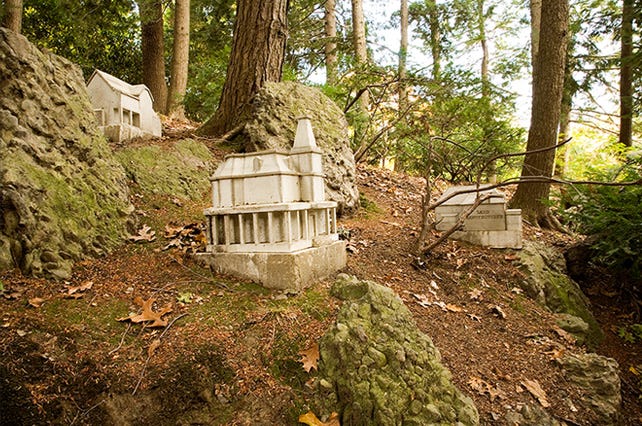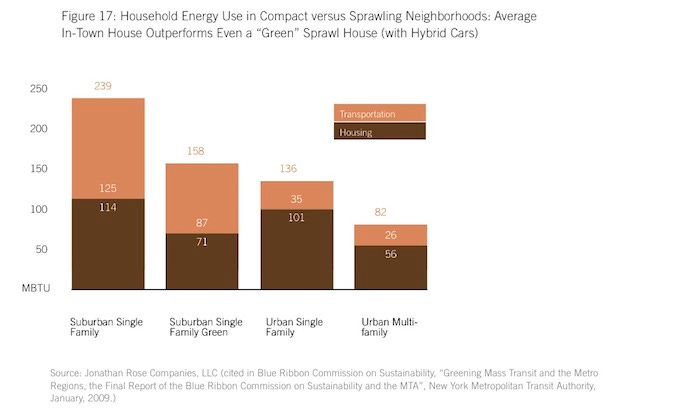
Neighbors, by Christopher Frost, in Forest Hills Cemetery where I walk my dogs sometimes.
“Political awareness without activism means looking at the devastation, your face turned toward the center of things. Activism itself can generate hope because it already constitutes an alternative and turns away from the corruption at center to face the wild possibilities and the heroes at the edges or at your side.” - Rebecca Solnit
Where I live in Roslindale, a diverse and still somewhat accessible neighborhood toward the southern end of Boston proper, there’s a 130-year-old house a couple doors down with a really nice big tree out front. We got a note in the mail that the owner intends to raze and rebuild the house, not a huge deal in the grand scheme, as the entire city of Boston feels more or less like one giant raze and rebuild project these days. But for the years we’ve lived here, we’ve watched as the owner let this house sit in various states of disrepair and inattention. Now the longtime tenants are being kicked out for a swift 100% displacement. The owner Jerry, who bought the house in 1990 for $161,000, will cash in on Boston’s surreal housing market, turning the property into three units that will probably sell for half a million each. This is a very common occurrence around here.
Last week I went to a meeting in a community center basement to hear about the project. There were a couple dozen people there and as always some had serious qualms about zoning variances, landscaping, quality of siding. A handful of us kept trying to steer the conversation toward affordability, but the perfectly nice people from the city reminded us that unless a building is 10 units or more, they can’t require affordable units, our hands are simply tied you understand. Just for fun, I asked Jerry if he would voluntarily consider making one of the three units affordable and he politely said no, I’m afraid that is not a thing that will be happening.

I abut this house. I am an abutter.
A few blocks away from that house, there is a city-owned parking lot just outside of the neighborhood’s business district. Boston has this program that is trying to add housing stock to existing public properties (libraries, firehouses, etc.), and given this sizable lot, it seemed like a good opportunity to retain the public parking while building affordable housing maybe on top of it, for example.
So this week, I went to another meeting in the same community center basement about this project, and there were many, many more people in attendance. You might not be surprised to find out that lots of them were very angry! A lot of people talk about how the internet is ruining public discourse, but those people should attend more community meetings because they are kind of like live-action Twitter, lots of yelling and heckling. For most of the people opposed, the concern was parking and that losing any of those parking spots would kill the local businesses. The rough concept had no net loss of parking, so seems like maybe also some people just really didn’t want new affordable housing being built. There were, however, quite a few other people who were in favor, freaked out about the affordable housing crisis in the city, and even some who brought up climate change.
There was a lot of big national news about climate change this week—the summit in New York, ongoing protests, a grim oceans report—but I wanted to talk about these meetings because they have been on my mind and also they are one way the climate crisis, and climate justice specifically, unfolds in very local form. Housing and land use are multifaceted issues, but they are inextricably linked to both carbon emissions and climate impacts. Cities are going to continue changing dramatically, both as a result of mitigation and adaptation and sometimes chunks being swallowed up by the ocean unfortunately.

As more extreme changes are required, communities will have to make serious decisions about what we want our neighborhoods to look like. The range of people being asked to sacrifice, being pushed aside, or being forced to relocate will grow, but always starts with lower-income families and communities of color. Housing discussions are often grouped into either NIMBYism or YIMBYism, two not particularly helpful terms describing either knee-jerk opposition or support for any new building. In reality, these decisions are complicated and emotional, and don’t fall along easy divides. There are good reasons to support new developments and good reasons to be skeptical that they will deliver what they promise. The challenge at hand is to deliberately build, rebuild, and rehab in ways that are low-carbon, equitable, and allow communities to thrive.
Lately I’ve been interested in the work of community nonprofits like PUSH Buffalo in New York, which is developing green affordable housing, local renewable energy projects, and offering green jobs training, all while lobbying at the state level for better housing and climate policy. It’s the kind of thing that presents a vision for future neighborhoods, while trickling up to bigger national change.
I would very much like to finish here by saying when you get together with your neighbors to discuss these issues, it is very refreshing compared to bitter national debates. But honestly, it is also kind of a pain in the ass. Still, there is common ground to be found, battles to be won, and bonds to be forged right in our backyards. And at least there you get to see people you know and wave, oh hi how have you been, and every now and then great things emerge. Not sure they will emerge on that parking lot though, we’ll see. People seem pretty attached to it.
Reading
I read this book a few years back, but it’s so good and very relevant to this topic so I’m going to recommend the Pulitzer-winning Evicted: Poverty and Profit in the American City by Matthew Desmond. It’s basically a sprawling work of journalism, a masterpiece of nonfiction storytelling and observation, but Desmond is a sociologist who spent years living alongside the families he profiles. The rigor is unbelievable and it’s both heart-wrenching and inspiring as it closes with policy solutions to the problems he documents.
Links
Every system made of water on the planet will be thrown into turmoil, to varying degree, depending on how much we can reduce carbon pollution in the next few decades.
Scooters, e-scooters, bikes, ebikes are great. But I hate electric scooter startups for a bunch of reasons. Two new reasons—most of the time they don’t replace car trips and there are hidden emissions in the business model.
The revival of 90s fashion is forcing Aya Cash to confront her angsty, self-loathing 90s youth.
Arizona faces deep cuts to its use of Colorado River water, with farmers losing access in the next few years on an accelerated timeline due to climate change and overuse. At the same time, the Ak-Chin and Gila River tribes are becoming agricultural leaders.
Those freaky robot dogs are hitting the streets. They will always make me think of this horrifying Black Mirror episode, and maybe for good reason seeing as how their maker is funded by military contracts.
“How dare you. You have stolen my dreams and my childhood with your empty words.”

Kickflip Batman courtesy of Watertown-based artist Jesse Lonergan. This is my favorite drawing I saw this week, but all of Jesse’s work is fantastic.
Watching
We just finished the third season of The Good Place as the fourth and final season approaches. Ted Danson is a national treasure and D'Arcy Carden 100% deserves an Emmy. It also makes zero sense for this weird show about moral philosophy to be a primetime network sitcom. My dear friends/family Josh and Theresa told me about a meme where everyone is some combination of two humans from the Good Place. I am clearly Chidi and Eleanor because I can’t make a decision and I am an Arizona trash bag. For example, I strongly identify with heaven smelling like a waterpark to Eleanor.
Listening
This song was in a show I was watching and now I love this French-Congolese rapper Youssoupha even though I have no idea what he is saying.
I mentioned now and then good things emerge from local politics, and sure enough, we had a preliminary city council election this week that was cause for celebration. We’re heading toward what could be one of the city’s most diverse and progressive city councils. I did a little volunteering for a candidate in our district, Ricardo Arroyo, who ran on a platform of equity (including affordable housing). He is a very inspiring and good dude, and ended up winning the most votes, heading to the general election in November.
Sometimes politics feels enormous like this giant monster, maybe a UN summit or an actual monster facing impeachment charges. But it’s important to remember that politics is also really small, sitting on a folding chair in a community center basement. So small you can wave hello to it or even wrap your arms around it if you are on good terms.
Tate
P.S. If you like this newsletter, maybe share it with that button below or hit that heart button these are functioning buttons fyi.
